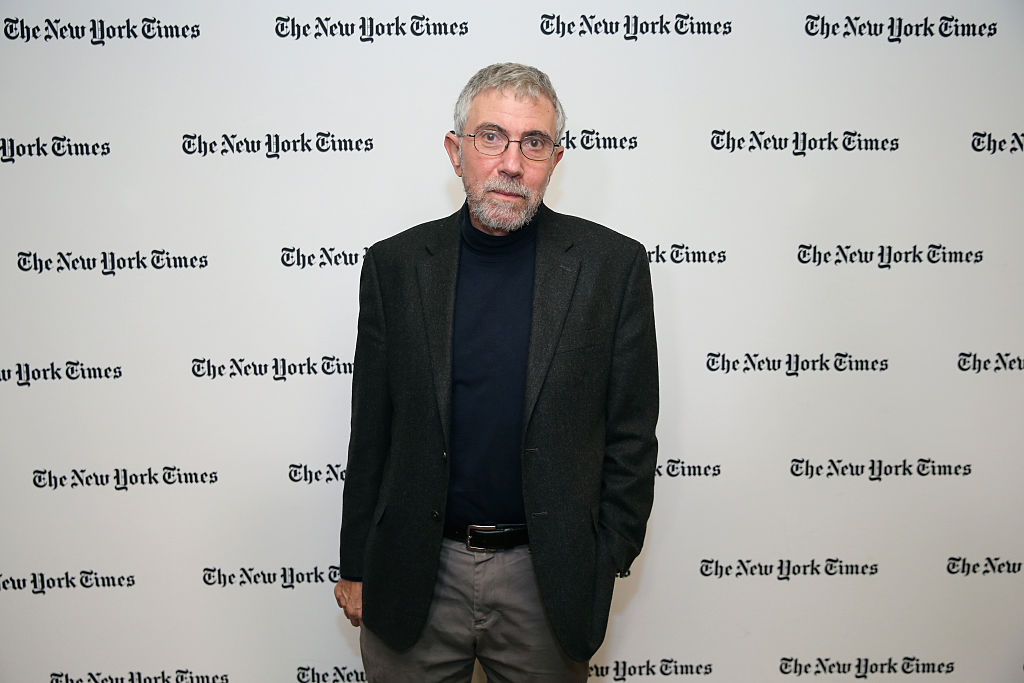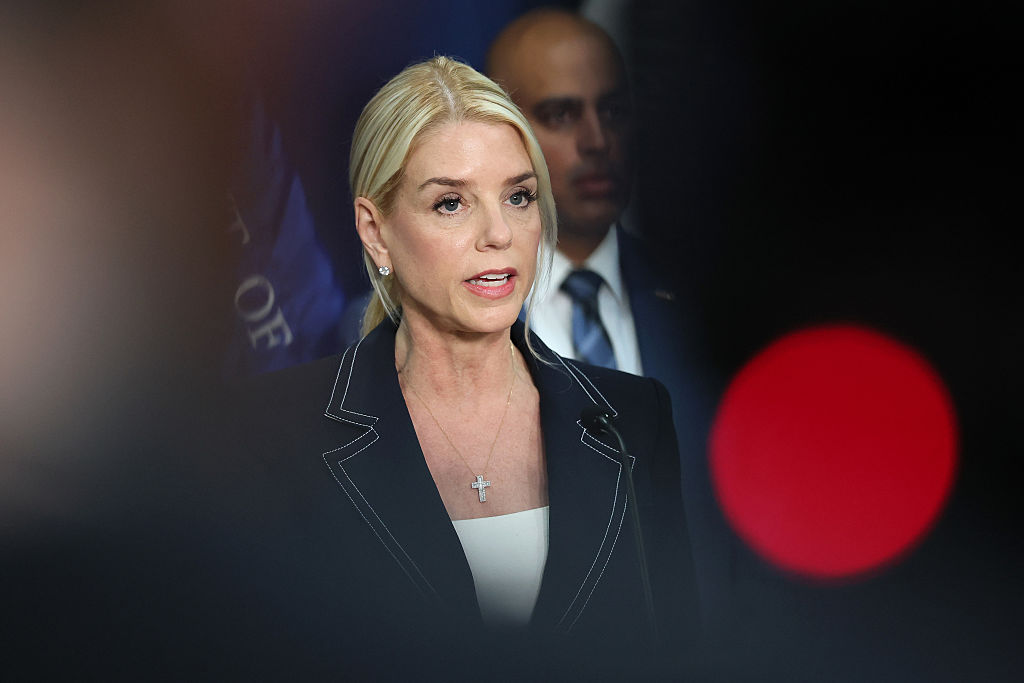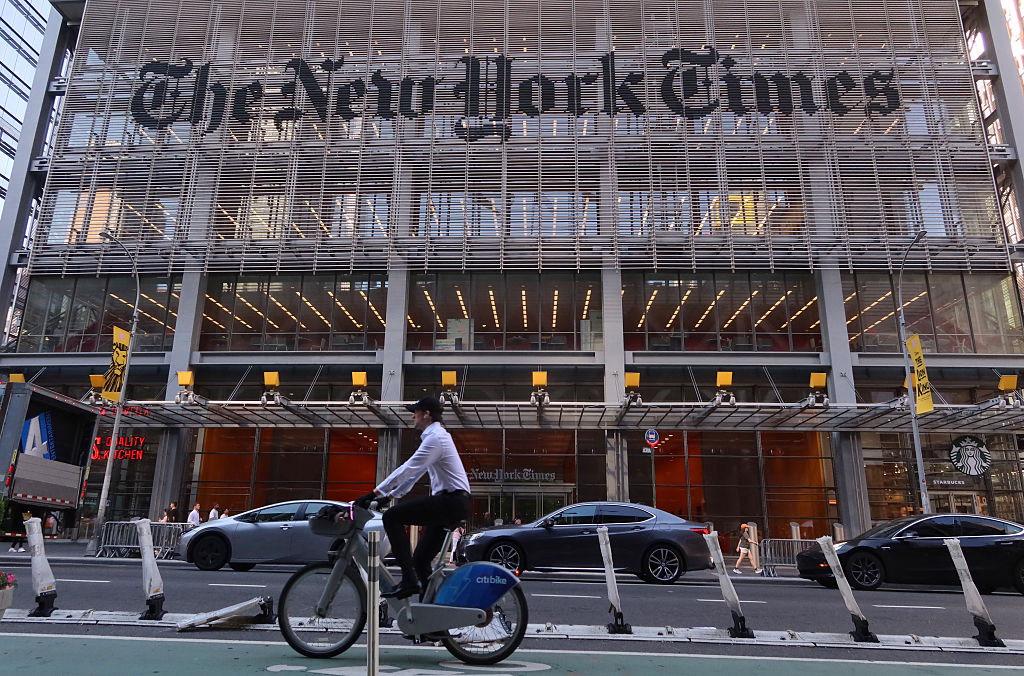“What strikes me, looking back, is how optimistic many people, both here and in much of the Western world, were back then and the extent to which that optimism has been replaced by anger and resentment.” So wrote New York Times columnist and Nobel economics laureate Paul Krugman in his last column for the former paper of record on December 9. After twenty-five years of gaslighting the reading public with one egregiously false prognostication after another, on December 6 New York Times opinion editor Kathleen Kingsbury announced that seventy-one-year-old Krugman was stepping down. Alas, he says he will continue to weigh in on social and economic issues in other media.
Like most members of his profession, even up to his last words in the Times Krugman continued to broadcast his utter lack of self-awareness rather than any relevant insight into the world in which he lives. The “anger and resentment” that strikes him is not the anger and resentment of the 72 percent of Americans who told exit pollsters on Election Day that they were unhappy with the direction of the country and, on that basis, rejected Kamala Harris — and Krugman-endorsed Bidenomics — by both popular and electoral college majorities in favor of the once and future President Donald J. Trump. Nor is it the anger and resentment of the record-high 69 percent of Americans who told Gallup in a study released in October that they have little or no trust in the mainstream media of which Krugman is an iconic part.
Instead, the only anger and resentment Krugman can detect from his cosseted Upper West Side digs is that of “billionaires” who, Krugman feels, “don’t feel sufficiently admired.” Presumably, their number includes Trump, who survived four criminal prosecutions, two impeachments and two assassination attempts to win reelection, and Elon Musk, the richest man in the world, who will be focusing on cutting the federal budget by one third, a task Krugman derided before it has even started as a “clown show.” It is they, and the 800 or so other Americans who share their high net worths, who are the problem, allegedly having manipulated the general public into bringing about “a collapse of trust in elites” — that is, in “experts” like Krugman’s Yale and MIT-trained self.
A cursory review of Krugman’s checkered journalism career suggests the real reason Americans are disinclined to put any faith in people like him. Even before he started at the Times in 2000, Krugman argued that the internet would experience little growth in the new century and would have about as much effect on the economy as the fax machine. Somehow, the Times hired him anyway. He argued that East Asian economic growth was a myth, only to eat his words for the next twenty years as those economies expanded thanks to pro-growth economic policies and traditional social conventions Krugman and his paper revile, while he was collecting fat pay checks from his column, speaking fees and cushy Princeton University professorship.
In 2012, Krugman praised Argentina’s socialist government for its “remarkable success story” but somehow held onto his job and renown when that country quickly collapsed in a massive, decade-long economic crisis that its new right-libertarian president is only beginning to correct thanks to policies that Krugman dismissed last year as “monetary magic.” At home, he predicted Trump’s first election in 2016 would usher in a devastating economic collapse rather than the years of steady growth it did produce until the Covid-19 pandemic intervened. He has repeated that prediction for Trump’s next administration, probably with the same degree of accuracy. Krugman has described the plight of ordinary Americans he likely never sees or deals with as a “bout of inflation” that he argued would not be a problem, even as consumer prices that mean little to him skyrocketed 20 percent or more under Biden.
Even Krugman’s valedictory skewering of American billionaire bogeymen contradicts his disdainful assertion, argued in his painful 2007 screed The Conscience of a Liberal, that one of the only reasons Republicans win elections is that they are racists and rely on racism on convince poor whites to vote against what he decides is their economic interests. Try telling that to the record number of blacks and Hispanics who voted for Trump this year.
According to figures compiled by Statista, in the years during which Krugman has published his fanciful and out-of-touch columns with no consequences for his employment, the Times’s print circulation has dropped like a stone, from over 1.1 million to just 279,000. At the risk of paraphrasing Taylor Swift, a leftist billionaire entertainer who, Krugman once argued, is underpaid for producing songs largely about choosing the wrong man, “Hi, it’s you, Paul, you’re the problem, it’s you.”


























Leave a Reply